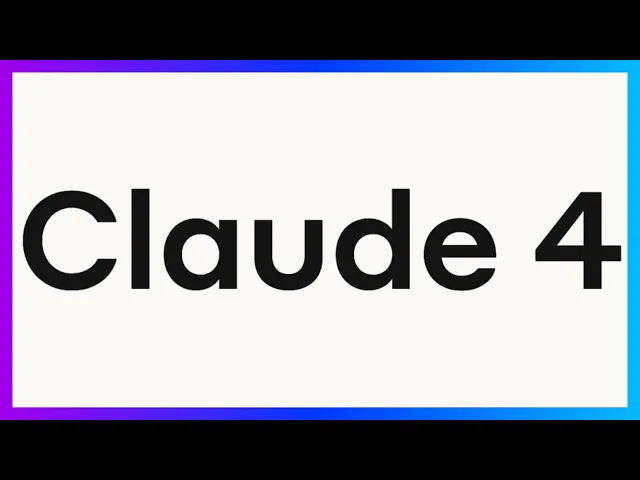Claude 4 Sonnet & Opus in 9 Minutes

Claude 4 redefines AI with stunning capabilities
In the rapidly evolving landscape of artificial intelligence, Anthropic has unveiled Claude 4, marking a significant leap forward in AI capabilities and accessibility. This latest release represents not just an incremental improvement but a fundamental shift in what we can expect from AI assistants. Claude 4 comes in two versions—Sonnet and Opus—each designed to meet different user needs while demonstrating remarkable advancements in reasoning, comprehension, and task execution.
Key Developments in Claude 4
-
Unprecedented reasoning abilities allow Claude 4 to solve complex problems across domains like math, coding, and logic with significantly improved accuracy and reliability compared to previous models.
-
Enhanced comprehension and contextual understanding enables Claude 4 to process nuanced instructions, grasp implicit meanings, and maintain coherence throughout extended conversations.
-
Expanded multimodal capabilities permit the AI to analyze images with remarkable detail, extract text from visuals, and interpret complex diagrams—functioning almost like having computer vision built into a conversational AI.
The Breakthrough That Changes Everything
What makes Claude 4 truly revolutionary is not any single feature but its dramatic reduction in the "capability gap" between AI and human professionals. In standardized tests across various domains—from bar exams to graduate-level academic assessments—Claude 4 Opus now performs at or above the 90th percentile. This represents a fundamental shift from AI as a helpful but limited tool to something approaching a capable collaborator in knowledge work.
This matters tremendously because it redefines where AI fits in professional workflows. Previous generations of AI assistants required careful supervision and extensive prompt engineering to produce usable results. Claude 4, particularly Opus, demonstrates sufficient reliability that professionals can delegate increasingly complex tasks with confidence. For businesses, this translates directly to productivity gains and the ability to augment teams with AI in ways previously not feasible.
Beyond the Hype: Real-World Applications
While the video focuses primarily on Claude 4's technical capabilities, it's worth exploring concrete applications that showcase its potential. Consider the field of legal research, where associates typically spend countless hours reviewing precedents and constructing arguments. Claude 4's ability to analyze complex documents, extract relevant information, and synthesize coherent summaries could dramatically accelerate this
Recent Videos
How To Earn MONEY With Images (No Bullsh*t)
Smart earnings from your image collection In today's digital economy, passive income streams have become increasingly accessible to creators with various skill sets. A recent YouTube video cuts through the hype to explore legitimate ways photographers, designers, and even casual smartphone users can monetize their image collections. The strategies outlined don't rely on unrealistic promises or complicated schemes—instead, they focus on established marketplaces with proven revenue potential for image creators. Key Points Stock photography platforms like Shutterstock, Adobe Stock, and Getty Images remain viable income sources when you understand their specific requirements and optimize your submissions accordingly. Specialized marketplaces focusing...
Oct 3, 2025New SHAPE SHIFTING AI Robot Is Freaking People Out
Liquid robots will change everything In the quiet labs of Carnegie Mellon University, scientists have created something that feels plucked from science fiction—a magnetic slime robot that can transform between liquid and solid states, slipping through tight spaces before reassembling on the other side. This technology, showcased in a recent YouTube video, represents a significant leap beyond traditional robotics into a realm where machines mimic not just animal movements, but their fundamental physical properties. While the internet might be buzzing with dystopian concerns about "shape-shifting terminators," the reality offers far more promising applications that could revolutionize medicine, rescue operations, and...
Oct 3, 2025How To Do Homeless AI Tiktok Trend (Tiktok Homeless AI Tutorial)
AI homeless trend raises ethical concerns In an era where social media trends evolve faster than we can comprehend them, TikTok's "homeless AI" trend has sparked both creative engagement and serious ethical questions. The trend, which involves using AI to transform ordinary photos into images depicting homelessness, has rapidly gained traction across the platform, with creators eagerly jumping on board to showcase their digital transformations. While the technical process is relatively straightforward, the implications of digitally "becoming homeless" for entertainment deserve careful consideration. The video tutorial provides a step-by-step guide on creating these AI-generated images, explaining how users can transform...
